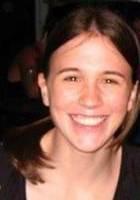Connect with hundreds of tutors like Ashley
Who needs tutoring?
FEATURED BY
TUTORS FROM
- YaleUniversity
- PrincetonUniversity
- StanfordUniversity
- CornellUniversity

Ashley
About Me
I consider myself an exception to the rule. Why? In high school, I played the flute and piccolo and marched during halftime while wearing my cheerleading uniform. I also graduated from the International Baccalaureate program. At Texas A&M University, I studied mechanical engineering and worked as a resident assistant in a private dorm where I put on social events, including Calculus tutoring. I took tumbling twice for fun and I minored in mathematics because the idea of taking additional math classes made me excited. After college, I joined Teach For America and taught 6th grade science for three years because teaching students was more appealing to me than making money in engineering. Evidence of my love for teaching is throughout this history. In high school, I tutored fellow band members struggling in algebra, geometry, and calculus so they could pass and continue marching. I also helped lead a study group for the IB Physics HL test. During my first year of college, I tutored ten people in my Calculus I class, all at the same time (so at that point it was basically another Calculus class). The teacher was brilliant but he did not know how to explain the challenging concepts in ways students could understand, so I had fun developing my tutoring to adapt to each individual person and better help him/her understand what seems IMPOSSIBLE and make it POSSIBLE and ENJOYABLE. Before joining Teach For America, I volunteered for my former 6th grade English teacher and focused on two students in building their writing confidence. Teaching 6th grade science, I integrated math whenever I could and I had the opportunity to teach math for summer school. Everyone can understand math and science if they can relate to the subject. I will guide you to your personal understanding and relations with whatever math (middle school, algebra, geometry, trigonometry, pre-calculus, calculus) or science (middle school, physics) subject you struggle with. I understand the frustration that comes with not being able to comprehend what's going on (history does this to me!) but it helps to know that you can overcome the frustration with guidance from a tutor and determination that you can do it! 2+2=4 was once the hardest math problem in your life but after practice, it's intuitive... and I can work with you on a path to make all math feel that way. Understanding projectile motion in physics or electron configuration in atoms for middle school can be tough but with real-world examples and using your imagination, there is no limit on what you can learn and truly understand! Thanks for taking the time to read a bit about me, and I look forward to joining you on a learning journey soon!
Education & Certifications
Q&A with Ashley
Connect with a tutor like Ashley
Connect with a tutor like Ashley
Tutors with Similar Experience

Joanna
10+ YearsLaGrange College
Bachelor in Arts, English/Theater Performance Double Major
View Profile
